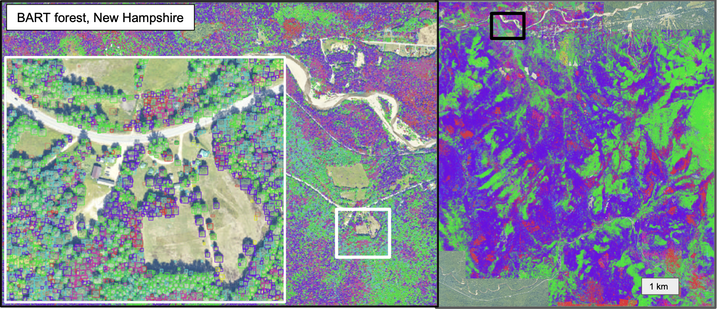
Abstract
Anthropogenic land cover changes (LCC) affect regional and global climate through biophysical variations of the surface energy budget mediated by albedo, evapotranspiration, and roughness. This change in surface energy budget may exacerbate or counteract biogeochemical greenhouse gas effects of LCC, with a large body of emerging assessments being produced, sometimes apparently contradictory. We reviewed the existing scientific literature with the objective to provide an overview of the state-of-the-knowledge of the biophysical LCC climate effects, in support of the assessment of mitigation/adaptation land policies. Out of the published studies that were analyzed, 28 papers fulfilled the eligibility criteria, providing surface air temperature and/or precipitation change with respect to LCC regionally and/or globally. We provide a synthesis of the signal, magnitude and uncertainty of temperature and precipitation changes in response to LCC biophysical effects by climate region (boreal/temperate/tropical) and by key land cover transitions. Model results indicate that a modification of biophysical processes at the land surface has a strong regional climate effect, and non-negligible global impact on temperature. Simulations experiments of large-scale (i.e. complete) regional deforestation lead to a mean reduction in precipitation in all regions, while air surface temperature increases in the tropics and decreases in boreal regions. The net global climate effects of regional deforestation are less certain. There is an overall consensus in the model experiments that the average global biophysical climate response to complete global deforestation is atmospheric cooling and drying. Observed estimates of temperature change following deforestation indicate a smaller effect than model-based regional estimates in boreal regions, comparable results in the tropics, and contrasting results in temperate regions. Regional/local biophysical effects following LCC are important for local climate, water cycle, ecosystems, their productivity and biodiversity, and thus important to consider in the formulation of adaptation policy. However before considering the inclusion of biophysical climate effects of LCC under the UNFCCC, science has to provide robust tools and methods for estimation of both country and global level effects.
#Supplementary notes can be added here, including code and math.